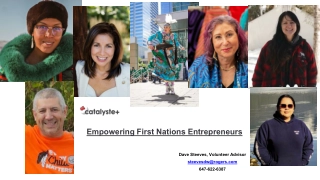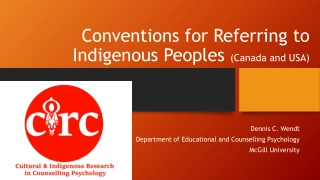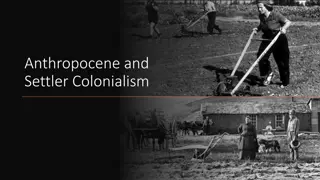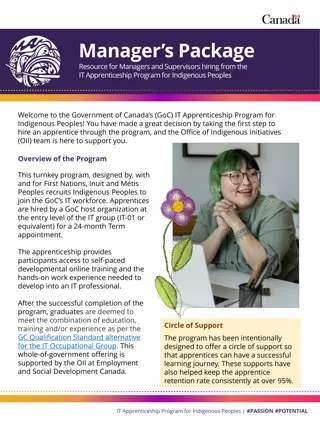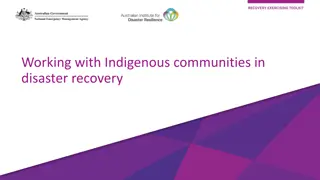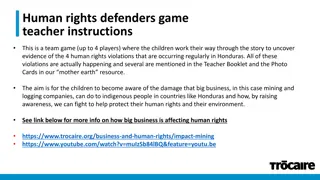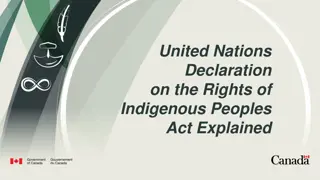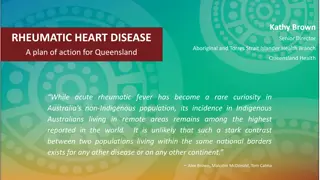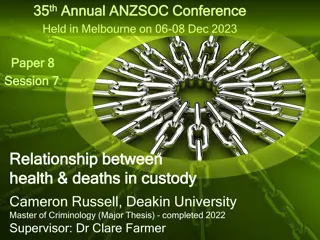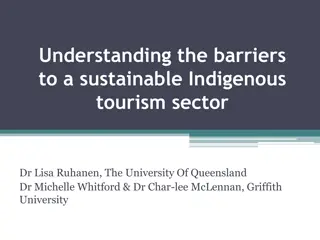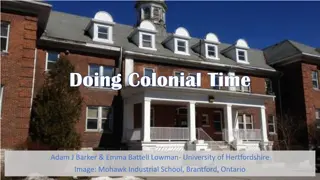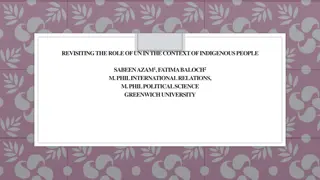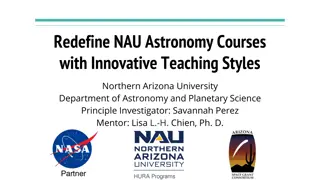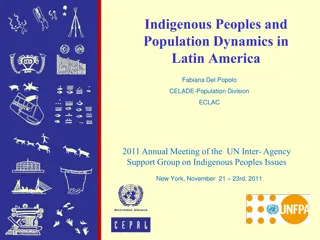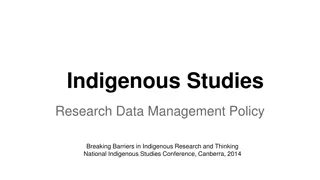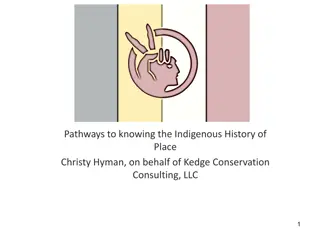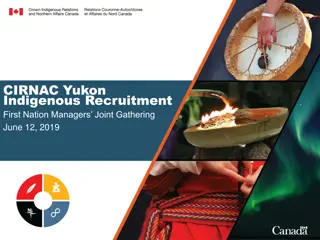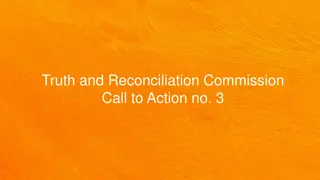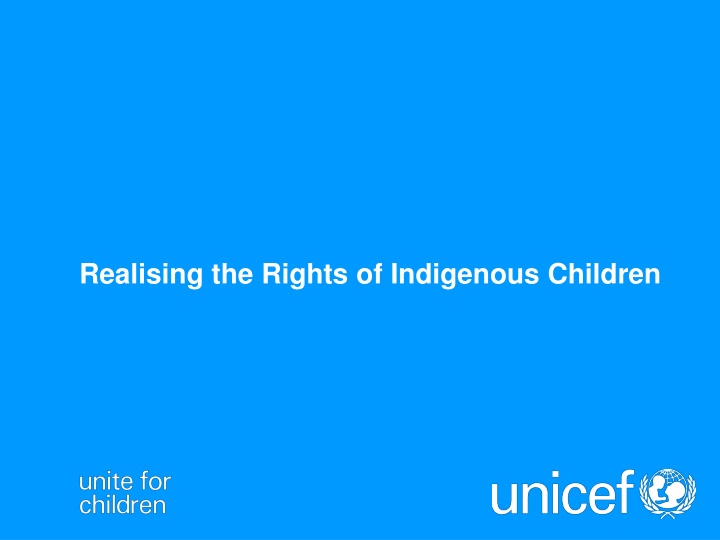
Realising the Rights of Indigenous Children
Realising the Rights of Indigenous Children is crucial for their well-being and development. Efforts such as MTSP Focus Areas 2006-13 aim to support Indigenous child rights through interventions like young child survival, basic education, HIV/AIDS support, child protection, and policy advocacy. The report by Innocenti and Forum reinforces the importance of addressing the specific needs of Indigenous children to ensure their rights are protected. Partnering with communities and governments is essential to monitor and promote Indigenous rights effectively.
Download Presentation

Please find below an Image/Link to download the presentation.
The content on the website is provided AS IS for your information and personal use only. It may not be sold, licensed, or shared on other websites without obtaining consent from the author. If you encounter any issues during the download, it is possible that the publisher has removed the file from their server.
You are allowed to download the files provided on this website for personal or commercial use, subject to the condition that they are used lawfully. All files are the property of their respective owners.
The content on the website is provided AS IS for your information and personal use only. It may not be sold, licensed, or shared on other websites without obtaining consent from the author.
E N D
Presentation Transcript
MTSP Supports Indigenous Child Rights MTSP Focus Area s 2006-13: Interventions: FA 1: Young child survival and development. Development of primary health care services in indigenous areas and ensure that these services are made accessible, affordable and culturally acceptable. FA 2: Basic education and gender equality. Promotion of intercultural / bilingual education that is gender sensitive to promote access for girls and promotes opportunities for participation. FA 3: HIV / AIDS and children. Support for the training of health care staff and civil society organisations. Health education content will take account for indigenous beliefs, practices and sensitivities about illness, sex and reproduction. FA 4: Child protection from violence, exploitation and abuse. Promote birth registration and respond to violence, abuse and exploitation of children by strengthening family, kinship and community networks e.g. addressing alcoholism within communities. Education and community awareness is most effective at addressing child labour and juvenile justice measures should promote dignity and worth. Trafficking and sexual exploitation awareness campaigns, social mobilisation and by tackling poverty and marginalisation. Support governments in monitoring the status of indigenous rights. Evidence based programme needs to be supported by more valid and accurate information. FA 5: Policy advocacy and partnerships for children s rights.

